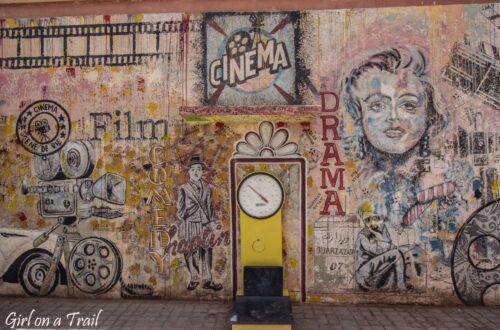
Abu Simbel – Egypt, buried temples and mirage
Abu Simbel is one of the greatest tourist attractions of Egypt, right behind the Pyramids of Giza. It’s located on the far southern part of Egypt, just below the Sudan border, actually in the middle of nowhere, or more specifically, in the middle of the Sahara desert, far from any civilization. Reason enough to be here as life here is very different than in the rest of Egypt.

Abu Simbel consists of two temples: Ramses’es II and his wife Nefertari’s. The Temple of Ramses is dedicated to the sun gods Amon-Re, Re-Horachte and to Ptah – the god of arts and crafts. The entrance to the temple makes an amazing impression, it’s decorated with huge statues of Ramses II, each of them is 20 meters high. At the feet of the pharaoh, you can see the other members of the royal family: his wife Nefertari and children.

The entire temple is about 30 meters high. Inside, you can see numerous reliefs depicting pharaoh’s power and courage. The interior of the temple is quite dark, while during the two days of the year on February 22nd and October 22nd, the figures of the sun gods Amun-Re and (Ra-Horakhty and Amon-Re) are illuminated with sunrays.

The nearby Nefertari Temple was dedicated to Ramses’ beloved wife and the goddess of love and beauty – Hathor. It’s a copy of Ramses Temple. At its entrance, you can see four statues representing Rameses II and two depicting Nefertari.

More interestingly, this is the only place where the statue of the pharaoh and his wife are equal, usually the wives of the rulers were “placed” in their legs. It means that Nefertari had a very big independence and power. We mustn’t forget that Ramses II had a great weakness for women. It is estimated that he had about 170 children. In the interior of the temple, you can see reliefs depicting Nefertari.

What’s more interesting, nowadays the temples are located in a completely different place than they were built. In the years 1964 – 1968 they’re relocated. The need for relocation was caused by the construction of the Aswan High Dam on the Nile, which threatened to flood the temples.

The temples were then divided into pieces, which were then placed like Lego blocks on a specially created hill, so that the waters of the artificially created Lake Nasser would not pose a threat to them.


The location of the temple of Ramses was also reconstructed so as to obtain the effect of illuminating the statues twice a year. More interestingly, the works on behalf of UNESCO were managed by a Polish archaeologist – Kazimierz Michałowski.

The temples in Abu Simbel are not the only reason why you should go here. The amazing desert landscapes and the opportunity to see how people live here, in my opinion, are even a greater attraction than the temples themselves.





Characteristic architecture can be seen here. The buildings are topped with domes, which allows for better ventilation. Proper air movement is very important, because the temperature here can reach up to 122°F .


Only some of the buildings here are made of brick. In general, you can often see various types of huts or makeshift tents. At first glance, you can see that life here is not easy.




In the desert you can see some irrigation systems, but there is no vegetation.

So what exactly do people do here for a living? The proximity of the border with Sudan makes the nearby town of Abu Sunbul an important trade center. On the road, you can find mainly trucks transporting various goods. Often you can see the cattle that are brought here from Sudan.




Along the road, you can see numerous warehouses, stalls, tires and animal bones – probably cattle that did not survive the long journey.



You can see mostly men on the streets, while women can be seen at the bus stops.


And finally, one more surprise 🙂 On the way towards Aswan you can see a mirage. The sight made an amazing impression on me, it actually looked as if the rocks were reflected in the water surface. It’s a pity that the photos, unfortunately, do not reflect this phenomenon.






